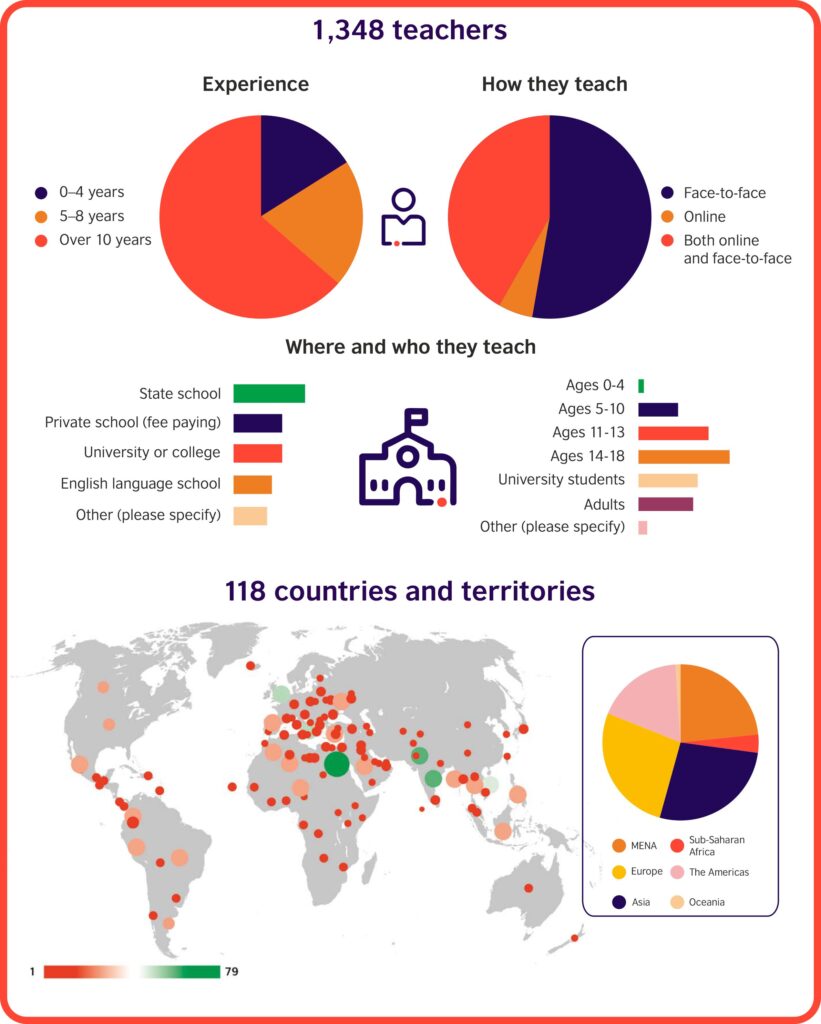‘Do you think AI will impact English language teaching and learning more than other disciplines?’ is just one question explored in a new report from the British Council.
The report, ‘Artificial Intelligence and English language teaching‘, analyses key industry research and opinions on the use of AI in ELT. Findings outlined in the report aim to show the opportunities and challenges the industry may face in the wake of ever-evolving AI tech.
In the Council’s talks with key stakeholders, the majority believe AI will not replace the need for human teachers. Instead, they see AI as aiding teachers, and say more analysis needs to be done on which tasks should be delegated to AI or humans. What AI means in this context, however, is unclear, as experts also believe there isn’t a widely understood definition, with more work needed to create one.
Additionally, experts see gaps in digital literacy and worry access to AI may widen the digital divide. However, they say it also makes learning more accessible to students with disabilities.
Some teachers are already using accessibility tools, such as text-to-speech, alongside other AI aids as part of their roles. In the Council’s global survey of 1348 teachers, the most commonly used tool was language learning apps, followed by language generation AI and chatbots.

British Council ©
When asked how they use these tools, many teachers use AI for their lessons, such as creating materials (57%) and lesson plans (43%). However, teachers seem to prefer to check work themselves, as just 33% report using tools to correct English, and 23% report using AI to grade or assess learners.
Almost a quarter of respondents reported not using any tools at all.
On the whole, teacher opinion of AI is positive; when asked if AI can help learners improve the four key skills, the majority agreed. However, they also agreed that learners should be able to write in English without the aid of AI.
Notably, when asked if AI can have a negative impact on the ability to improve English, answers were balanced, and around a third remained neutral.
Teachers also seem unsure of the impact AI will have on their role. However, they don’t appear to believe AI will make them redundant. Most teachers disagreed with the idea that AI and translation will make language learning unnecessary, and also disagreed that AI will eventually be able to teach English on its own.
To respond to concerns around the use of AI, key stakeholders believe there is a need for a global ‘AI in ELT’ framework. The framework would address potential problems, including some of those expressed in the Council’s report, such as data usage, inclusion, and protecting teacher jobs.
Director Insight and Innovation at the British Council, Amy Lightfoot says they are working to tackle these issues:
‘There is so much potential for AI in English language teaching, learning and assessment, but it does also come with significant risks and challenges.
‘We’re now exploring if and how we can address these, taking forward the recommendations and next steps outlined in the report. We are planning further consultation and collaboration with the wider English language teaching sector. We hope to be able to share more on this through a variety of channels including the upcoming IATEFL conference.’
You can download the full report here.







